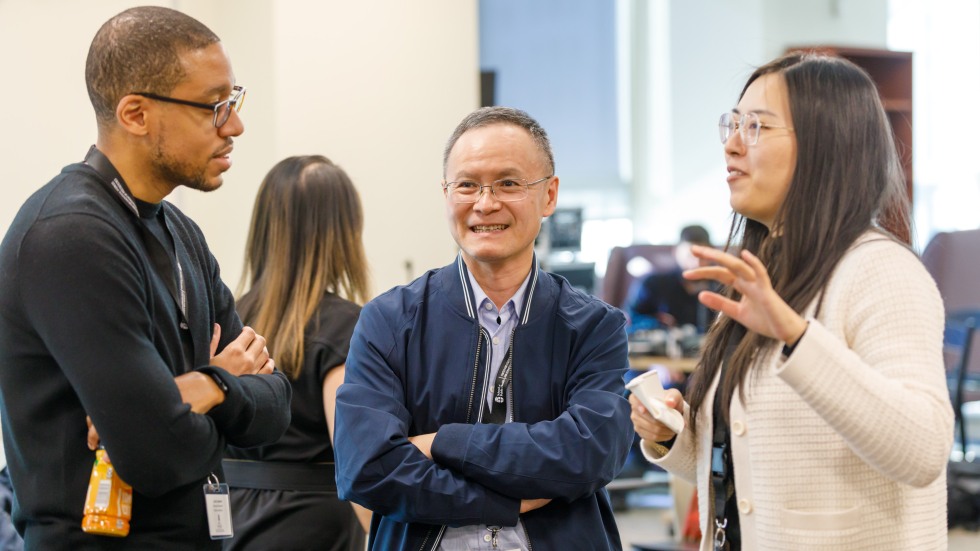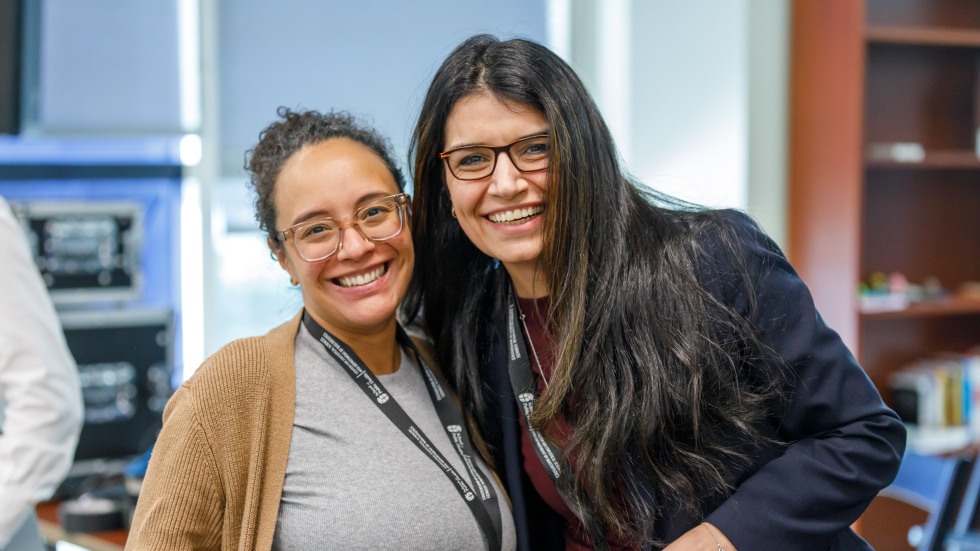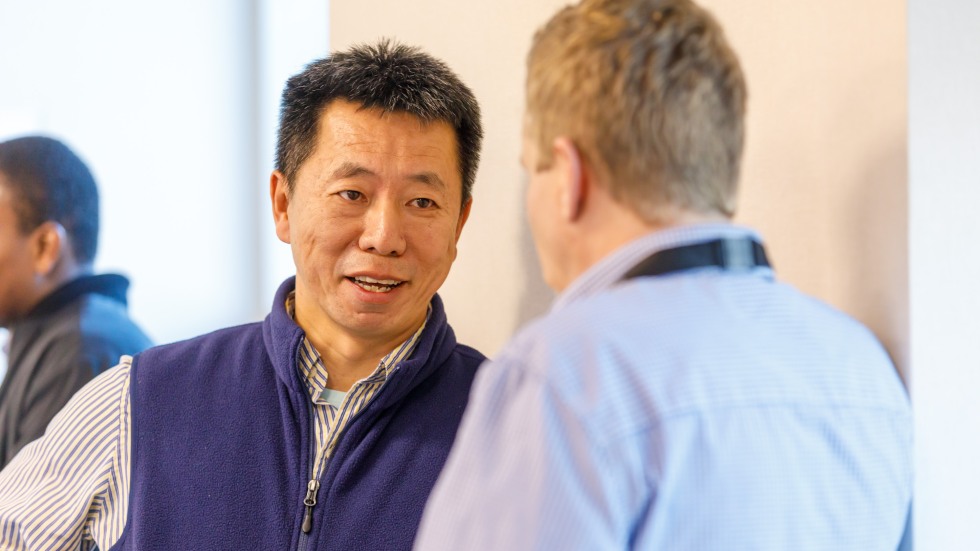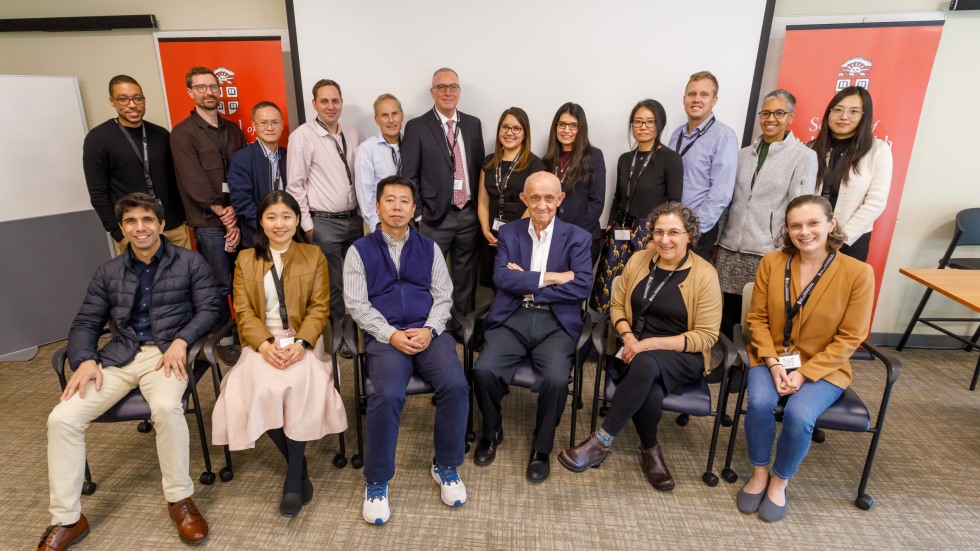On Friday, October 18, the Brown University School of Public Health marked 30 years of biostatistics at the University with the symposium “Health Data Science: State of the Art and a Look into the Future.”
The program brought together leading experts from Brown, Harvard, Columbia, Johns Hopkins, the University of Florida, the University of California San Francisco and the Mayo Clinic. In panel discussions throughout the day, speakers addressed critical topics including the future of clinical trial design, analysis of large observational data, and biostatistical research and education in the age of health data science and artificial intelligence.
“This 30-year milestone is really about reflecting on the growth we’ve achieved,” said Joseph Hogan, Carole and Lawrence Sirovich Professor of Public Health and chair of Brown’s Department of Biostatistics. “It’s also an opportunity to acknowledge the partnerships we’ve developed at Brown and to express our deep gratitude for the support we’ve received over the years.”
“Being here today is like a homecoming for me,” said attendee Yi Zhao, Ph.D. ’17, associate professor of biostatistics & health data sciences at the Indiana School of Medicine, and an alumnus of Brown’s doctoral program in biostatistics. “I cherish my time spent at the school; it means a lot to me both personally and professionally. My experience here gave me the insights and motivation to pursue my goals.”
During his opening remarks to a crowd of faculty, staff, students and alumni, Dean Ashish K. Jha pointed to the foundational importance of biostatistics in public health, calling the Center for Statistical Sciences (CSS) a “crown jewel” of the school.
“One of the things I admire about this specific center is that scholars have been willing to engage in some of the most important policy and public health issues of our time,” Jha said. “Certainly the work that is being done on AI, HIV, and the environment and climate change come first to mind. Ultimately, we cannot be an effective public health school, we cannot work on the issues of our time, if we’re not working closely with our colleagues at the center.”



